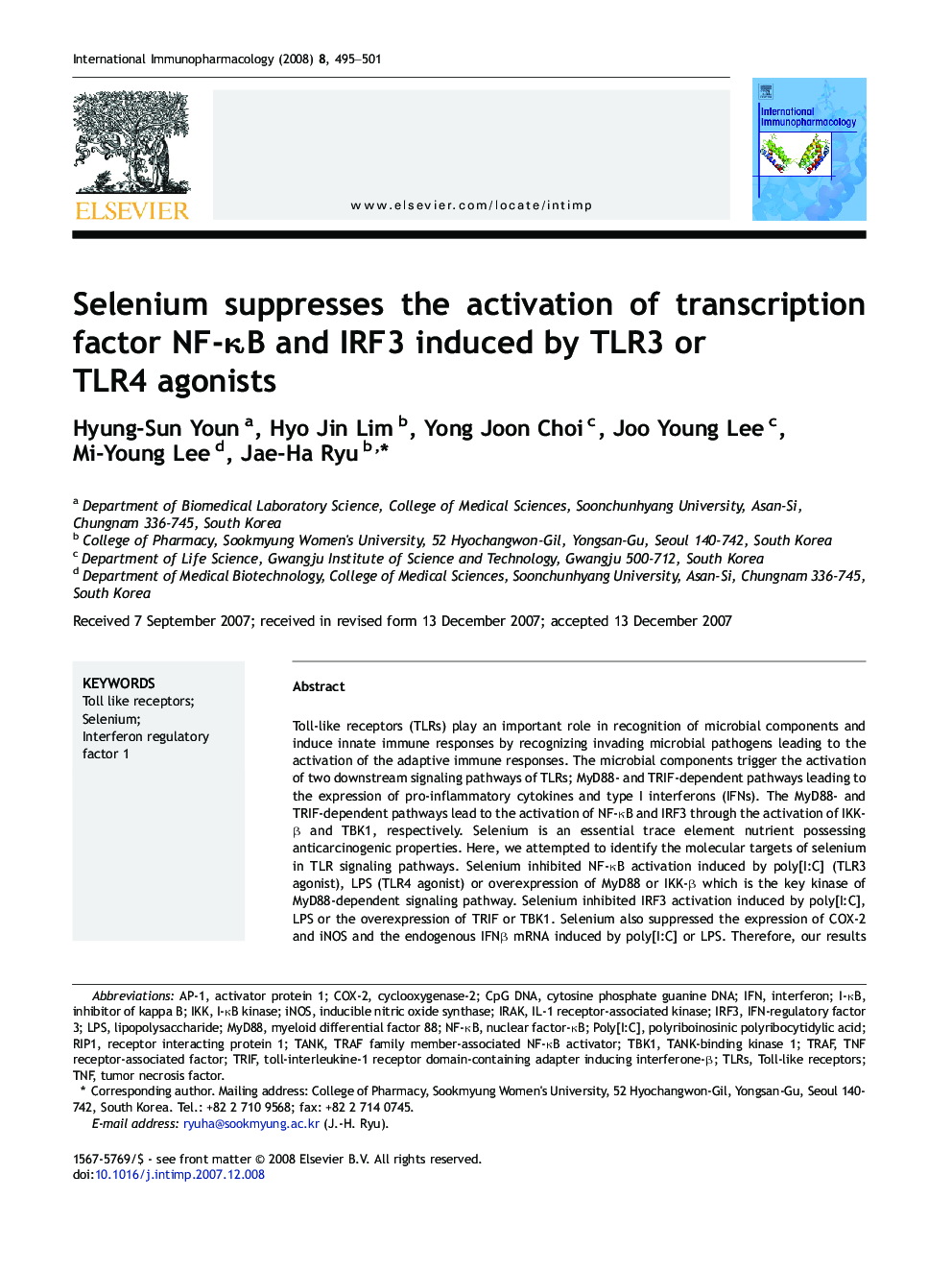| Article ID | Journal | Published Year | Pages | File Type |
|---|---|---|---|---|
| 2542300 | International Immunopharmacology | 2008 | 7 Pages |
Toll-like receptors (TLRs) play an important role in recognition of microbial components and induce innate immune responses by recognizing invading microbial pathogens leading to the activation of the adaptive immune responses. The microbial components trigger the activation of two downstream signaling pathways of TLRs; MyD88- and TRIF-dependent pathways leading to the expression of pro-inflammatory cytokines and type I interferons (IFNs). The MyD88- and TRIF-dependent pathways lead to the activation of NF-κB and IRF3 through the activation of IKK-β and TBK1, respectively. Selenium is an essential trace element nutrient possessing anticarcinogenic properties. Here, we attempted to identify the molecular targets of selenium in TLR signaling pathways. Selenium inhibited NF-κB activation induced by poly[I:C] (TLR3 agonist), LPS (TLR4 agonist) or overexpression of MyD88 or IKK-β which is the key kinase of MyD88-dependent signaling pathway. Selenium inhibited IRF3 activation induced by poly[I:C], LPS or the overexpression of TRIF or TBK1. Selenium also suppressed the expression of COX-2 and iNOS and the endogenous IFNβ mRNA induced by poly[I:C] or LPS. Therefore, our results suggest that selenium can modulate both MyD88- and TRIF-dependent signaling pathways of TLRs leading to decreased inflammatory gene expression.
